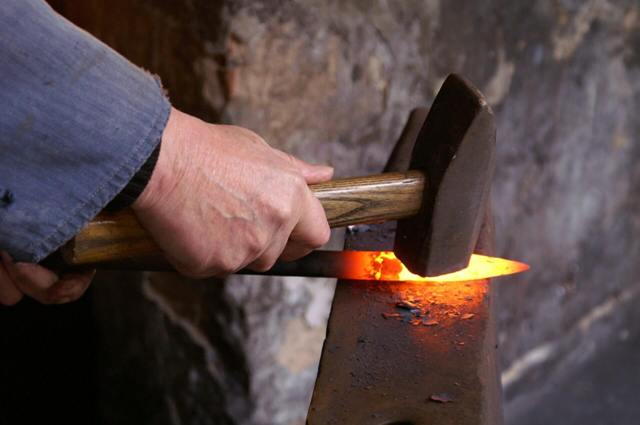
Forging
Cold forging, Warm forging, Hot forging
Forging is a manufacturing process where metal is shaped through the application of pressure, typically using a hammer or a press. Due to the continuous grain flow and absence of porosity, forged parts exhibit exceptional strength, toughness and structural integrity.
The process can be performed at room temperature (cold forging) or at elevated temperatures (hot forging), depending on the material and desired properties of the final product. Key aspects of the forging process include: heating (for hot forging), shaping, Open-Die forging or Closed-Die forging and finishing.
In addition to superior strength and durability, other significant advantages that forging offers are:
Enhanced Mechanical and Metallurgical Properties: The forging process refines the internal grain structure of the metal, improving mechanical properties such as increased tensile strength, impact resistance, and better metallurgical properties compared to cast or machined parts. At the same time, it reduces internal voids, gas pockets, and inconsistencies in the material.
Consistent and Uniform Structure: The forging process creates a more uniform and consistent grain structure throughout the part. This uniformity minimizes material inconsistencies and weak spots, contributing to the part's reliability and longevity.
Resistance to Fatigue and Stress: The directed grain flow and absence of internal defects reduce stress concentrations within the material. This property makes forged parts more resistant to fatigue failure, ensuring continued performance under repeated stress and load conditions.
Flexibility in Material Choices: Forging is suitable for various metals and alloys, including steel, aluminum, titanium, and exotic alloys, allowing flexibility in material selection based on the application requirements.
Variety of Shapes and Sizes: The process accommodates a wide range of part sizes and shapes, from small intricate components to large and complex shapes used in critical applications.
Due to the ability to produce strong, durable, and high-quality metal components, forging is especially suitable for critical industries such as:
Oil and gas industry, heavy machinery and equipment, power generation and railway and transportation.
